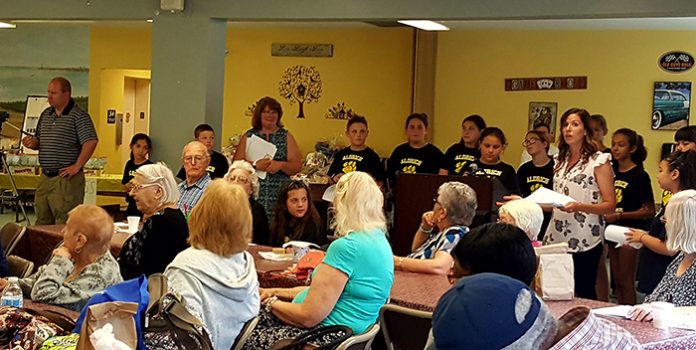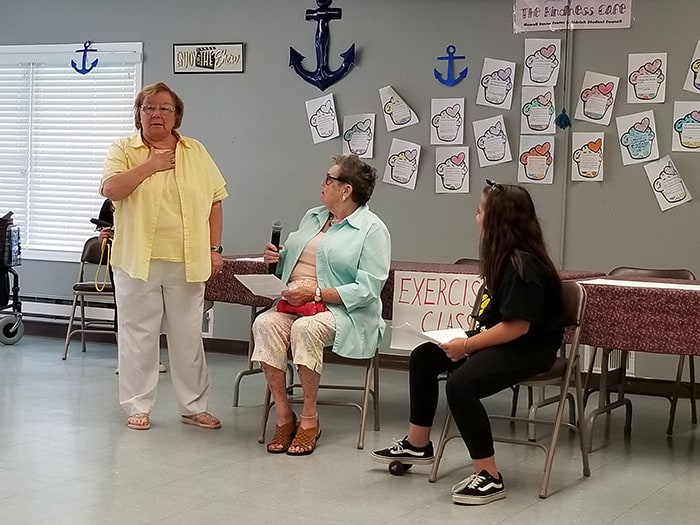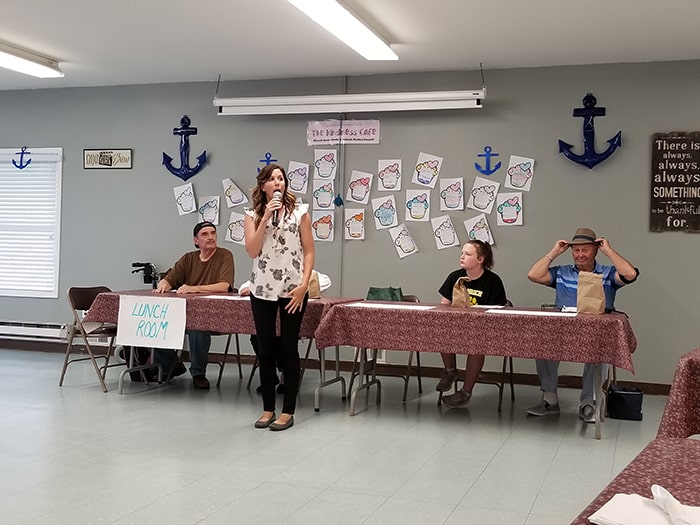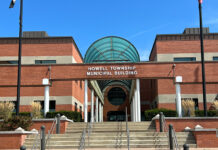
HOWELL – Perhaps you know the little boy in elementary school that got called “four-eyes” for wearing glasses every day. Maybe you were the girl who got made fun of for her hand-me-down clothes in high school.
These are familiar tropes when it comes to bullying, as so many have seen it or lived it at some point in their life. We watch it in TV shows, movies, and see it in everyday life.
But do we ever see this bullying represented in the adult or senior community?
While it may not be quite as easily recognized, bullying in senior communities is a problem nonetheless. Melanie Decker, director of Senior Services for Howell Township, is working to eradicate the problem in not just Howell, but in all senior communities by spreading awareness.
“Senior bullying is no different from the bullying that we hear about with children/adolescents,” Decker told Jersey Shore Online. “Bullying is intentional repetitive aggressive behavior that involves an imbalance of power and strength.”
Senior bullying can occur wherever seniors gather. It could happen at a senior center, on senior bus services, at nursing homes, assisted living facilities, senior communities, even at the local coffee shops where seniors congregate to have coffee or breakfast, according to Decker.
In 2017, the National Center for Assisted Living (NCAL) published a prevention resource on bullying among seniors. In it, NCAL Customer Relations Committee Chair Jeanne Jaeckels writes: “While assisted living communities offer a great opportunity for seniors and individuals with disabilities to socialize with others facing similar needs, we cannot assume that everyone will get along, or that victimization won’t occur. But that does not mean we simply accept it either.”

When someone says the word “bullying,” one might conjure up an image of a child being tripped in the hallway or a kid getting harassed for his lunch money. Decker noted that while senior bullying is still aggressive, more often than not it is not physical in this way.
“With older adults it is often nonphysical types of aggression but its goal is to impede the development of seniors making social connections,” she said.
Decker cited Robin Bonifas, a social worker at Arizona State University and author of “Bullying Among Older Adults,” to point out that there are typically three types of bullying: verbal, anti-social or relational, and physical.
Decker highlighted anti-social or relational-type bullying as the main method in many senior communities. Bonifas described this as “excluding others, shunning, mimicking others, preventing others from passing or getting on elevators, threatening body language or gestures.”
The NCAL separates these actions, claiming that women are more likely to gossip, snipe, be a part of a clique, display passive aggressive behavior or manipulate emotions. Men are more direct, spontaneous, verbally or physically abuse, or overly protective.
Typically, the difficulty of a transition into life at a new senior community can provide cause for this kind of bullying, according to NCAL. Or it could be related to health issues that bring about more aggressive or impulsive behaviors, such as dementia.
“What we see at the Senior Center used to be called “Seat Saving issues” but now we realize it’s the main form of bullying,” she explained. “We also see issues with “Pretty Napkins” being brought in and those that receive one are accepted into the group.”
Other methods of bullying take the form of: refusing to speak with new members of a community, anger over members that speak another language, leaving others out of games or group activities, making comments on another’s abilities to participate in a game/activity, or making comments about another’s intelligence.
“Bus transportation is another issue because when someone is too slow coming out to the bus members may tell the driver to just leave…others will try to kick people out of seats in the bus or push to get to the front of the line for the bus,” said Decker.
This even extends out of the common areas into residences, where some seniors reported issues in the laundry rooms in their buildings, she added.
“We do not have a lot of bullying at the center, but it does go on,” Decker stressed. While it is an issue at large, Decker emphasized that Howell’s Senior Center is not a hub for this type of behavior in any way. “Other issues are that members do not like this type of behavior, but they do not stand up to the “bully” to tell them that there aren’t assigned seats and anyone can sit at the table. We have a lot of bystanders.”
However, just as it is with the younger generations, bullying in senior communities continues despite having bystanders take action because “many people fear retaliation,” thus it goes unreported.
“Many people tell me they don’t want to create an issue or they don’t want to make a big deal about something when I do get told of possible bullying,” she said.
So, in an effort to work against a silently growing problem, Decker is spreading awareness. Through education, discussion sessions, articles, and media, Senior Services is drawing attention to senior bullying as well as how to prevent it.
Recently, Senior Services paired up with fourth and fifth graders from the Aldrich School to put on a bullying awareness event with skits back in June. This brought a difficult topic to light while bridging the generational gap.
In addition to this, Decker said she is always making announcements, writing about it in the department’s newsletter, having one-on-one conversations with people, and even started a Welcoming Committee to help new members to ease in.

“This is not a new phenomenon; it just now has a name. The ‘seat saving issues’ that have been going on at the senior center have been going on here for 20+ years, we are now just realizing how much the issue does exist and how detrimental it can be to one’s self-esteem, health and happiness,” she said.
An important facet of senior bullying is that it is not to be seen as comparable to elder abuse.
“We have laws against elder abuse and the exploitation of elders but these situations are different and often involve a younger generation as the abuser. The victim is often seen as more vulnerable and susceptible than the perpetrator,” Decker explained.
Since there are no laws on the books against bullying in senior communities, as there are with the younger generations, Decker’s main priority is spreading the word, making people aware that it is happening, and encouraging those involved to speak up and report.
“Overall the center is so welcoming, but it is nerve wracking to go from sitting home, being alone, lonely and isolated (this is the case for some people that have joined the center but not all) to walking into the center and there are 100+ members here,” said Decker. “If you are told on your first day you cannot sit at a table it’s very disheartening and can turn people away.”
For more information or to work on spreading awareness about senior bullying, you can visit the Howell Township Senior Services at twp.howell.nj.us/211/Senior-Services or 732-938-4500 ext. 2550.






